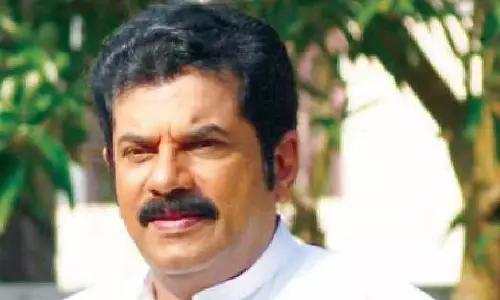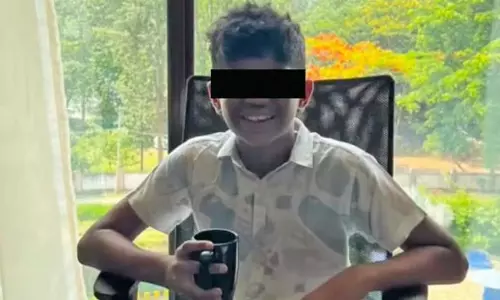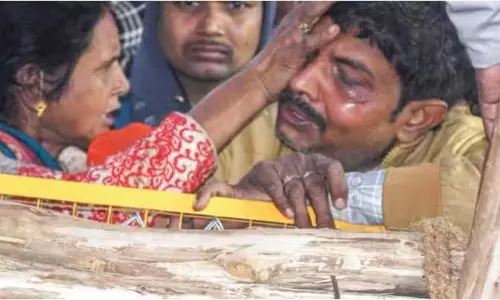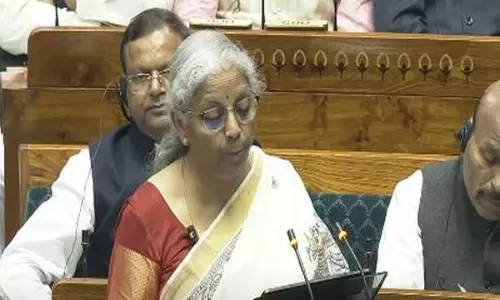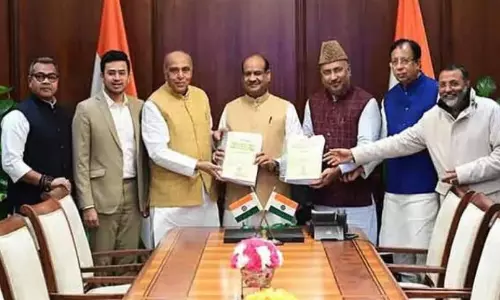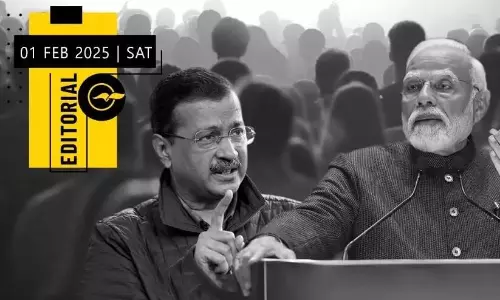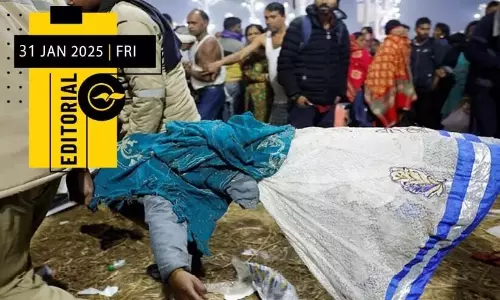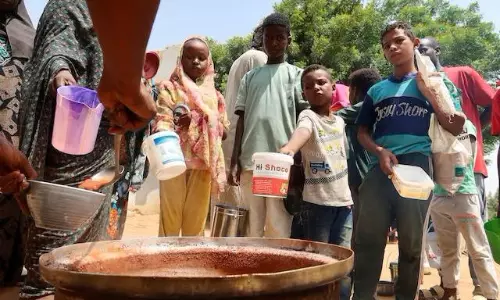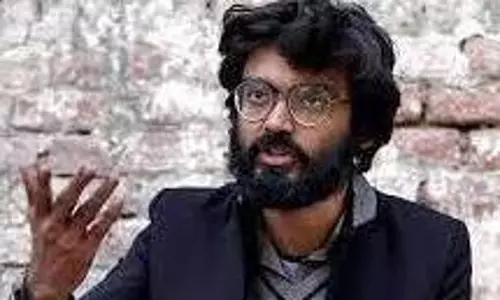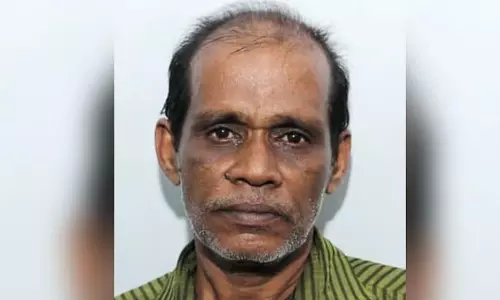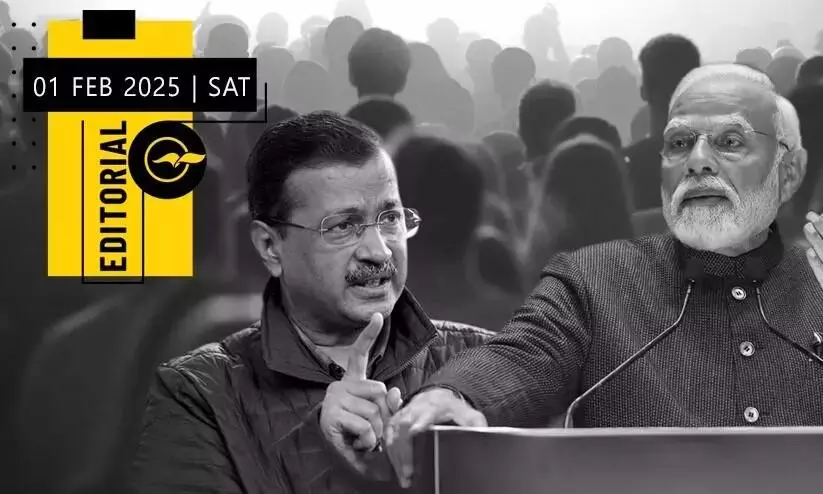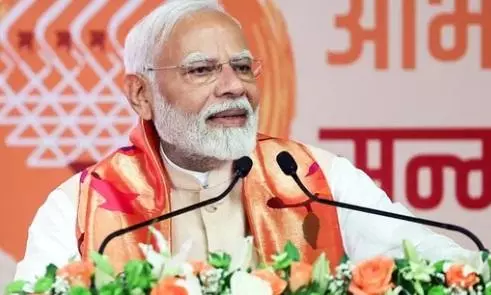
When we fail to see the poisoning of people's minds
text_fieldsDemocracy faces its greatest challenges even in India, hailed as the world's largest democracy. For several years now, many elections to legislative bodies and representative assemblies have been noted for their blatant attacks on democracy. The upcoming election to the Delhi Legislative Assembly is no different. The BJP, aware from past experiences that it is not easy to directly defeat the Aam Aadmi Party (AAP), which has already won over the people, especially women voters with its popular policies, is resorting to all kinds of tactics that violate the rules of the game.
The Aam Aadmi Party, which emerged as one of the most significant phenomena in Indian politics and has been in power since 2015 with an absolute majority, has not been allowed to govern smoothly by the Narendra Modi government at the Centre. It is part of the reason why the Aam Aadmi Party has become the party with the most MLAs arrested in a short period. Modi and his team have been adopting anti-democratic stances by deploying the central government's puppets, the Lieutenant Governors, within the AAP government's jurisdiction, misusing the Delhi Police under the Union Home Ministry's control to manipulate law and order and criminal investigations for their own interests, and unleashing the so-called independent investigative agencies like the CBI and ED to imprison leaders including Arvind Kejriwal. Despite any political differences, the central government has a responsibility to provide all possible support for the development work in Delhi, as it includes the National Capital Region. However, the Centre’s every move has been seemingly aimed at undermining the many excellent initiatives implemented by the AAP government, including in the health and education sectors, in every way possible; in short, a complete subversion of federal systems.
With the legislative assembly elections just five days away, an unprecedented level of conflict and controversy has arisen between the AAP and BJP parties. The issue is contaminated drinking water. The 1994 memorandum of understanding signed by the chief ministers of UP, Rajasthan, Himachal Pradesh, Haryana, and Delhi, as per the Supreme Court's directive to ensure the availability of drinking water in the capital city, is still in force. Although Delhi occasionally raises concerns about neighbouring states neglecting to provide water, this rivalry between AAP and BJP has reached its peak in the past decade. Meanwhile, allegations are surfacing that neighbouring UP and Haryana are releasing water mixed with untreated industrial waste into the Yamuna River flowing into Delhi. The Delhi government had also accused Haryana of deliberately releasing water without warning, which caused an unusual flood two years ago. Alleging that Haryana is conspiring to deny Delhi its due share of drinking water, the current Chief Minister Atishi, while serving as the Delhi Water Minister, also staged a five-day hunger strike last June. Continuing this trend, the former Chief Minister and Aam Aadmi Party supreme leader Arvind Kejriwal has accused the BJP government in Haryana of poisoning the drinking water supplied to Delhi. Setting aside political interests, no one can deny the truth that poison is flowing in the Yamuna.
The CEO of the Delhi Jal Board revealed that the water flowing from Haryana into the Yamuna contains a dangerously high level of ammonia due to the mixing of sewage and industrial waste. The BJP, fully aware of the potential harm Kejriwal's statement could cause, demanded his arrest and a ban on his campaigning. The Election Commission promptly responded to the BJP's complaint by seeking an explanation.
In response to the commission's notice, Arvind Kejriwal defended his statement by offering to drink water sampled from the Yamuna publicly. Not satisfied with his reply, the Commission directed Kejriwal to appear in person, which he complied with. Kejriwal's toxic water statement and the subsequent complaints provide some comfort to political science students, suggesting that the Election Commission still exists in the country and will seek explanations for controversial statements. However, it is impossible to ignore that this same Commission remains seemingly lifeless when BJP leaders, including the Prime Minister, engage in extremely vile hate campaigns against the country's minority communities, acting as if it doesn't exist.




